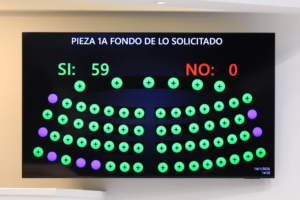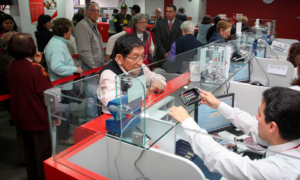
El Salvador has taken a firm step towards the modernization of its tax and customs administration, with the aim of improving tax collection and reducing tax evasion. Thanks to a digitalization project promoted by the Inter-American Development Bank (IDB), the country has integrated technological tools that allow for more efficient tax management. One of the main advances has been the implementation of the electronic invoice, which has facilitated the tax reporting and payment process for companies of all sizes.
This tool not only allows for better oversight, but also streamlines verification by the tax administration by automating the entire process. Marvin Sorto, director of the General Directorate of Internal Taxes, highlighted that the digital platform allows companies to manage their finances and taxes in real time.

As of september 2024, a total of 6,897 taxpayers had already adopted this solution, contributing to a significant reduction in the use of paper and natural resources. The government estimates that the project prevented the felling of 29,157 trees and saved 208.6 million liters of water, thus promoting environmental sustainability.
To facilitate this digital transition, the project included updating the country’s legislation and digital and physical infrastructure. This reform encompassed the taxpayer registration database, increasing the Ministry of Finance’s control and analysis capacity. Ana Cristina Calderón, head of the project team, emphasized the citizen focus of the project, designed to bring taxpayers closer to the tax administration and facilitate compliance.
This transformation has had a positive impact on Value Added Tax (VAT) collection, which went from representing 3.5% of GDP in 2017 to 8.7% in 2023, according to the Ministry of Finance.
Taxpayers have also noticed the improvement in the express service centers, where the facilities have been expanded and modernized to offer a more comfortable and accessible environment. Félix Alfredo Pineda, user of the San Vicente Express Center, appreciated the conditions of the center, noting that he can now complete his procedures more quickly and comfortably thanks to the online services.

The Ministry of Finance has also strengthened its technological infrastructure to support the digitalization of the tax system. This includes a modernized server network and the integration of databases from different tax directorates, which has allowed for greater availability of online services, especially during peak demand on tax due dates.
In terms of tax collection, technological advances have helped to increase tax revenues by US$2 billion between 2020 and 2023. With these efforts, the country has managed to bring tax revenues to 20% of GDP. This growth reflects greater effectiveness in tax enforcement and in monitoring taxpayer compliance, according to Finance minister Jerson Posada.
Digitalization has reduced attention times and improved efficiency in tax supervision processes, contributing to the reduction of evasion. “We have made significant progress in strengthening public finances. Now, we must continue on the path of digital modernization to maintain revenue growth and eliminate the tax evasion gap”, said Posada, reaffirming El Salvador’s commitment to the digital transformation of its tax system.







